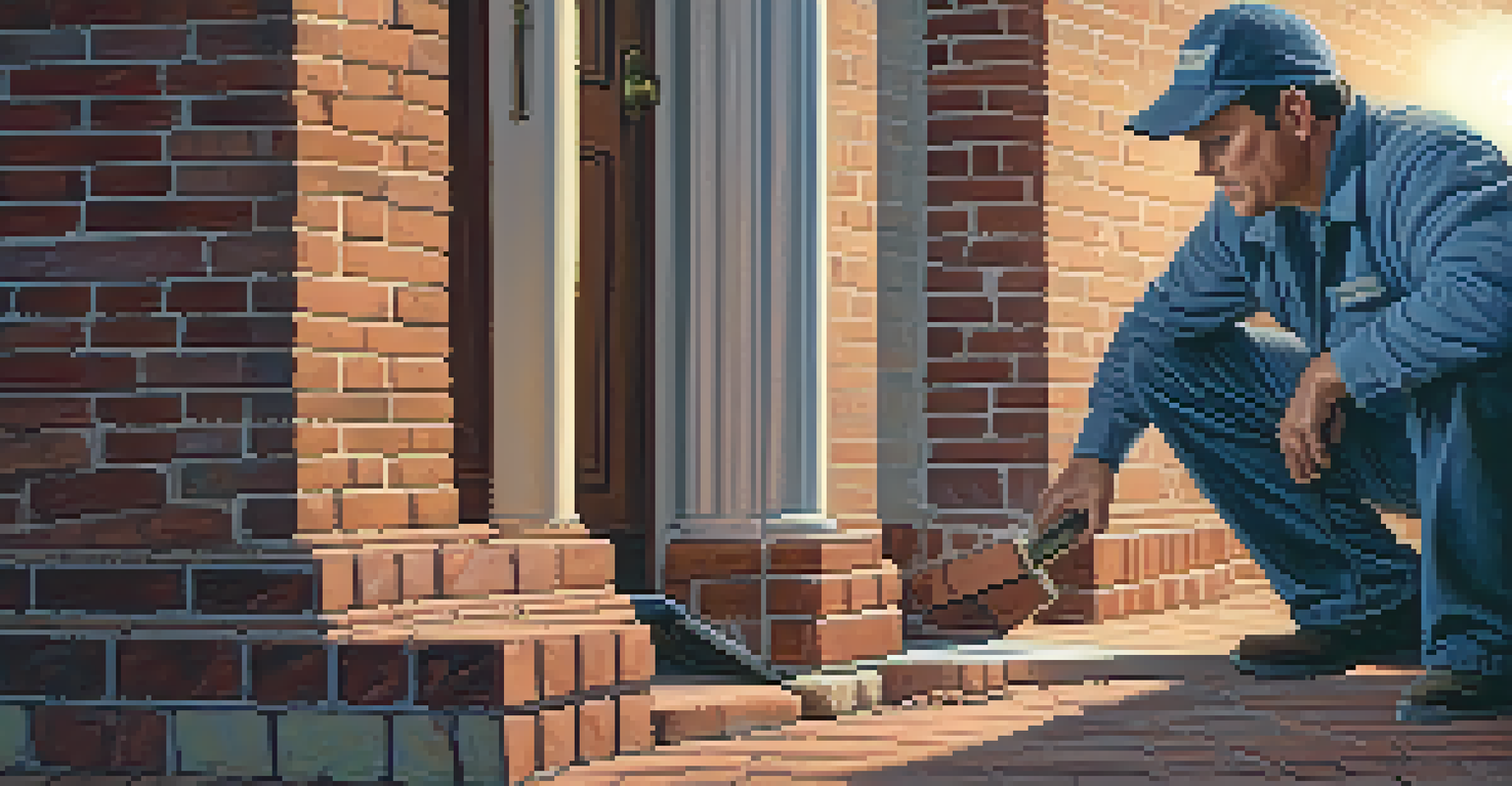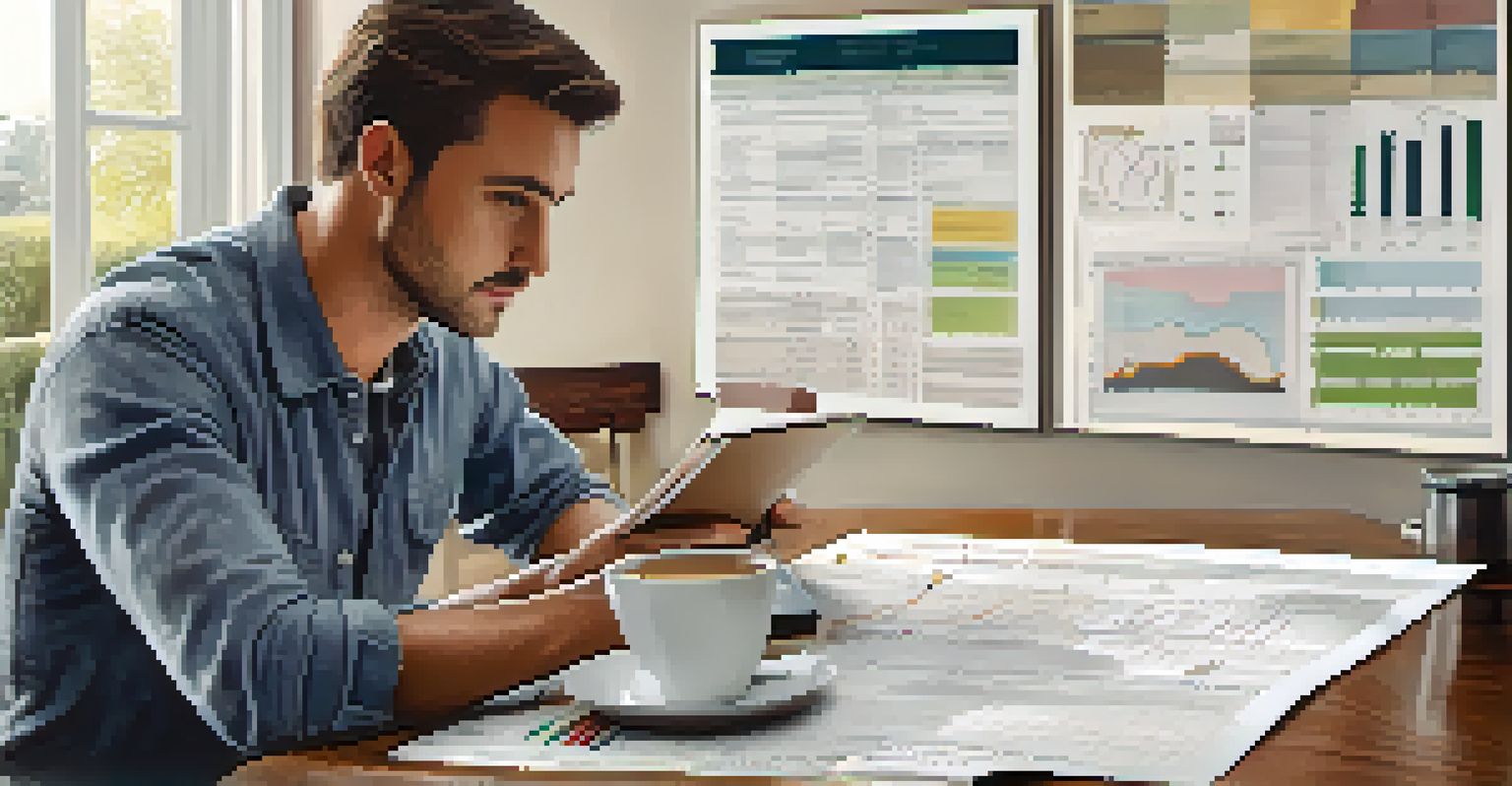The Benefits of Having a Second Inspection Before Closing

Understanding the Importance of a Second Inspection
Buying a home is one of the most significant investments you'll make, and it’s essential to protect that investment. A second inspection can unveil issues that might have been missed during the first round, ensuring you're fully informed before closing. Think of it as a safety net—catching potential problems before they become a financial burden.
An investment in knowledge pays the best interest.
During the first inspection, emotions can run high. You might be so excited about the prospect of your new home that you overlook some red flags. A second inspection gives you a fresh pair of eyes, allowing you to take a step back and evaluate the property more critically.
Additionally, if repairs were promised after the first inspection, this second look is your chance to verify that those fixes were completed correctly. It provides peace of mind that everything is as it should be before you sign on the dotted line.
Uncovering Hidden Issues Before It's Too Late
Homes can hide a variety of problems, from structural issues to pest infestations, and these aren't always apparent at first glance. A second inspection allows you to dig deeper, potentially uncovering hidden issues that could lead to costly repairs down the line. For example, a leaky roof may not show up until after the first rain, causing damage that could have been avoided.

Moreover, different inspectors may have varying expertise. One inspector might focus on electrical systems, while another might have a keen eye for plumbing problems. By conducting a second inspection, you increase the chances of identifying issues that may have been overlooked the first time.
Second Inspections Uncover Issues
A second inspection can reveal hidden problems in a home that may have been missed initially, protecting your investment.
This proactive approach not only saves you money but also ensures your new home is safe and sound. It's about making a wise investment and avoiding surprises that can dampen your excitement.
Negotiating Power: Strengthening Your Position
Armed with the findings from a second inspection, you can bolster your negotiating power. If new issues arise, you can go back to the seller with a solid case for reducing the purchase price or asking for repairs. Think of it as having a detailed report card on the home's condition.
The bitterness of poor quality remains long after the sweetness of low price is forgotten.
For instance, if the inspection reveals that the furnace is nearing the end of its life, you can negotiate either for a lower price or for the seller to replace it before closing. This can save you from unexpected expenses after you move in.
Ultimately, being informed gives you leverage in the negotiation process, allowing you to make decisions that are in your best interest. It’s about ensuring that you’re getting the best deal possible.
Peace of Mind: Reducing Buyer’s Remorse
Homebuyer’s remorse can be a daunting feeling, often stemming from uncertainty about the condition of a property. A second inspection can help alleviate those worries, providing clarity on what you're purchasing. Knowing that you’ve thoroughly checked the home reduces the chances of regret after closing.
When you have confidence in your decision, it changes the entire moving experience. Instead of stressing over potential repairs, you can focus on making the space your own. This peace of mind is invaluable, especially for first-time homebuyers who may feel overwhelmed by the process.
Boost Negotiating Power
Findings from a second inspection provide leverage to negotiate repairs or price reductions with the seller.
Ultimately, a second inspection is about ensuring that your new home is a place of joy, not anxiety. It’s an investment in your happiness and comfort.
Verification of Repairs: Ensuring Work Was Done Right
If the seller agreed to make repairs following the first inspection, a second inspection serves as a vital verification step. It allows you to check whether those repairs were completed to a satisfactory standard. This ensures that what was promised is indeed what you’ll get.
For example, if the seller claimed to have fixed a plumbing issue, a second inspection can confirm that the problem was resolved correctly. It’s your opportunity to hold the seller accountable for their commitments.
This verification process not only protects your investment but also promotes a sense of trust between you and the seller. Knowing that you've done your due diligence can make the transition into your new home much smoother.
Financial Benefits: Avoiding Costly Repairs Down the Line
Preventative measures can save you thousands in the long run. By identifying issues during a second inspection, you can address problems before they escalate into significant repairs. For instance, a small crack in the foundation could turn into a major structural issue if left unchecked.
This proactive approach keeps your home in good condition and helps maintain its value over time. It’s about ensuring that what you invest in today doesn’t turn into a financial drain tomorrow.
Ensure Repairs Are Done Right
A follow-up inspection verifies that promised repairs were completed effectively, fostering trust between buyer and seller.
In short, the financial benefits of a second inspection can far outweigh the costs, making it a smart choice for any homebuyer looking to safeguard their investment.
Building a Trusting Relationship with Your Inspector
Choosing to have a second inspection can also foster a more trusting relationship with your inspector. When you seek a follow-up inspection, it shows that you value their expertise and insights. This can result in a more thorough and personalized examination of the property.
A good inspector will appreciate your diligence and may even offer additional insights based on their observations from the first inspection. They can provide you with advice on maintenance and upkeep, ensuring you’re well-prepared for homeownership.

Ultimately, building a trusting relationship with your inspector can be beneficial not just for this purchase, but for any future real estate ventures as well.
Concluding Thoughts: The Value of a Second Inspection
In conclusion, a second inspection before closing on a home is a valuable step that shouldn’t be overlooked. From uncovering hidden issues to enhancing your negotiating power, the benefits are clear. This additional layer of scrutiny can save you money, provide peace of mind, and ensure that your new home is a safe haven.
As you navigate the home buying process, remember that knowledge is power. The more informed you are, the better equipped you’ll be to make decisions that align with your goals and protect your investment.
So, before you close the deal, consider scheduling that second inspection. It could very well be the key to a successful and satisfying home purchase.